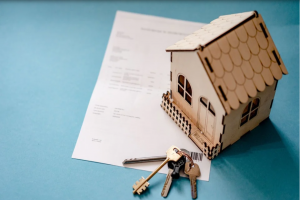5 Steps To Your First House Flip
It's the sexiest thing in real estate and the quickest way to gain riches! You've decided you want to go for the big sexy money of flipping houses in order to build your wealth! I mean how hard can it be? HGTV makes it look so easy and there are never any issues, they always make money. Well I am not going to sugar coat it for you, flipping is a hard emotional roller coaster way of investing in real estate but I am about to walk you through step by step of what I think you need to to do in order to become successful at finding, funding, executing, and selling your first project at a profit. Now I can not guarantee you will make a profit but I strongly feel that if you follow these steps you greatly increase your chances. So now let's get down to how to be the next HGTV stars!!!
Choosing your market
The first big thing you have to do is choose your market, now this could be your very own market where you live or it can be on the other side of the country it is really all about your barriers to entry and if you will be able to fund the deal. For me, I live in the San Francisco Bay Area and could not afford to flip houses out here. There are homes that have been completely destroyed by a fire and need to be torn down and are being sold for $800,000-1,000,000. So I chose Cincinnati for many reasons that I am about to explain. You can do most of this research through local real estate agents, business journals, the local commerce department, or the good ole internet.
- Your market should be growing in population, you do not want to invest in a market that is losing more people then it is gaining. This can be bad for housing prices because there could be more supply than demand causing it to be a buyer's market and not a seller's market.
- Employment rate should be low or be getting lower. If large companies are coming in this creates more jobs which in return causes more people to move to the area creating more demand.
- Is the local government supporting efforts to gentrify the area? Is the local government investing in the infrastructure like public transportation, airports, utility projects, tax incentives for businesses and developers? If they are then your housing market could begin to get hot or is already hot.
- Crime rates, if the crime rate is low then more families will move into the area. No one wants to live in a war zone.
- How does The Comprehensive Annual Financial Report (CAFR) look for your city? If it looks promising then this may be your new market.
Funding
Now that we have our market we need to figure out how we are going to figure out how we are going to fund the deal. There are multiple ways to fund a deal, you just have to figure out which option is best for you.
- Hard money is a great way to fund your first deal, it does not require to have the full amount but only 20% of the purchase price and then cash to pay for portions of the rehab that they then reimburse you.
- Partners can help you fund the entire project for 50% of the profits. Any partnership I have heard of or been apart of there is typically an equity partner (money partner) and a sweat equity partner (partner that finds and manages the deal).
- Private money is probably the holy grail of funding a deal. Someone will fund the purchase and rehab cost while you manage the deal and they charge an interest rate of 20% apr. Sometimes you pay the interest at the close of the sale or refinance or you make monthly interests payments.
- Cash is probably one of the hardest ways to fund a deal for most. You will need to have the cash to fund the purchase, rehab, insurance, and utilities. By doing this you greatly diminish your cash on cash return and most people do not have the fund available when they are starting out.
Finding the deal
There are many ways to find your deal but some require more work and capital than others so I will only be going over what I consider the easiest and best ways to find your first deal. There are three ways I consider to be the easiest and freeways of finding your first deal.
- The multiple listing services (MLS), you can link up with an investor-friendly agent to send you deals or place offers on a deal you find on Redfin or Zillow. I like this way when starting out because they may be able to give you area information and make recommendations on what people are looking for when buying a home or where people are buying homes.
- Wholesaler, this requires only networking with local wholesalers in your area. You can usually find these individuals through recommendations from other investors, facebook groups, or online forums. You can also try calling bandit signs you find and see if they are wholesalers and what deals they may have.
- Asset managers for bank owned properties. You can always try emailing and calling local asset managers that the banks use to sell their foreclosed homes. Asset managers will reach out to you sometimes before giving it to an agent to place on the MLS, it is a win-win for everyone; you can usually get them cheaper and the bank saves on the real estate agent commissions.
Bid process
So now you have found a deal and your offer was accepted, so what comes next? Well now you need to figure out what is going to be remodeled and with what finishes, and more importantly, you need to write it down on a detailed scope of work. After you have completed your detailed scope of work you can now bring in general contractors or subcontractors to get bids on your project and the timelines it will take. I recommend you set up one or two days to do this and bring in as many contractors as you can every thirty minutes. I say this because some contractors will be extremely high on their bid, others may not be able to start for a couple months, and some just might not show up.
Start of the project
So the day has come to start the project, so what do you do on this day? Well you want to ensure there is a lock box on the front door and the contractor has the code and your dumpster has arrived. You do one final walk through with your contractor to ensure everything is agreed upon and the scope of work is clear. After that its time to let the professionals do what they do best and check in at the end of each phase and write the check.
Now, this is a brief overview of how to find your first deal from the beginning to the start of your project. There are of course many little aspects that would consume an entire book if I were to go into great detail. But if you ever have any questions please feel free to reach out and ask. Maybe I will do a journal of finding my next deal so you guys can see the timeline of how long it can take and the work that goes into acquiring a deal and running the project from start to finish.









7 comments
Thank you!
I think a journal of your next project could be very helpful!! I have never done this before and i am very excited and very nervous all at the same time!!